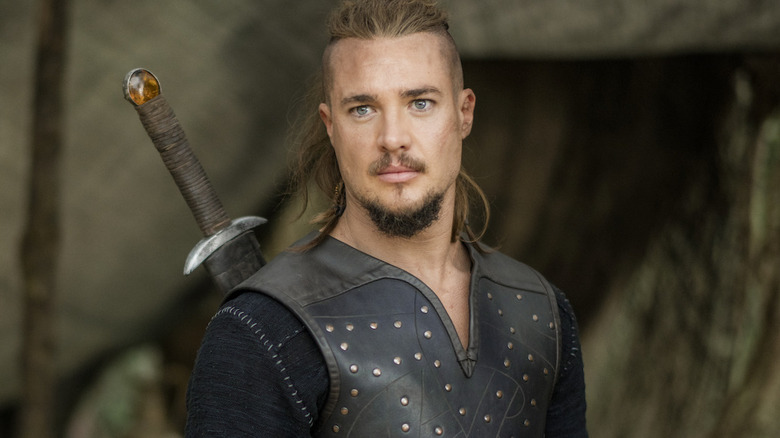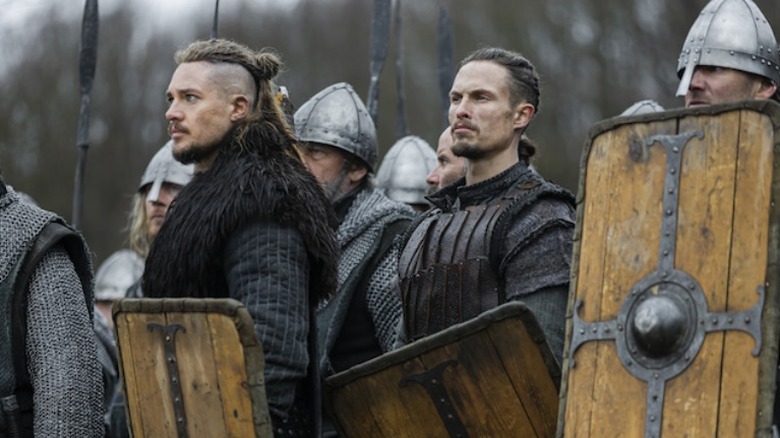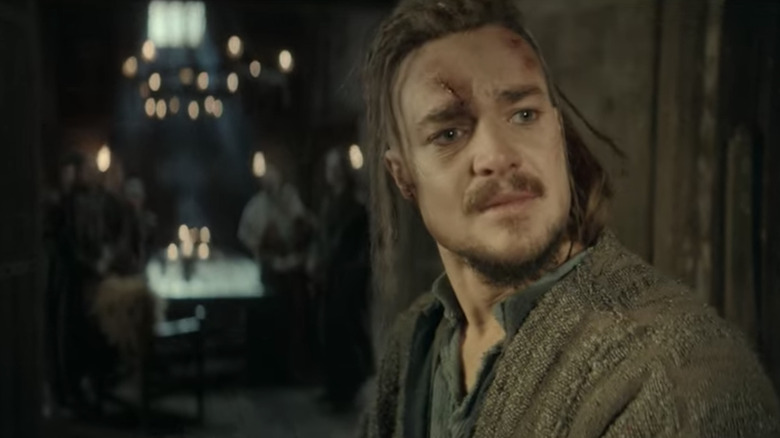The Last Kingdom: Seven Kings Must Die Changes The Book's Ending (Here's How)
Fans of Netflix's "The Last Kingdom" have finally received the long-awaited conclusion to the story of Uhtred of Bebbanburg (Alexander Dreymon), as his epic campaign of war and conquest comes to a climactic end in the recently released film "The Last Kingdom: Seven Kings Must Die."
Diehard fans of the series will know that "The Last Kingdom" is based on a series of 13 historical fiction novels called "The Saxon Stories" by Bernard Cornwell — though there are significant plot and character changes between the novels and the show, and Season 5 only partially adapts the final novel in the series, "War Lord."
"Seven Kings Must Die" finishes the adaptation of "War Lord," depicting the invasion of Northumbria by King Anlaf (Pekka Strang) and the climactic Battle of Brunanburh. However, like previous seasons of "The Last Kingdom," the film deviates wildly from its source material, and the ending is changed to place an aged Uhtred at the center of the Battle of Brunanburh — something which does not happen in the novel, and which shifts the ending to conclude with Uhtred's apparent death and entrance to Valhalla.
The aged Uhtred is more of an advisor in the books, while Aethelstan leads the charge
Readers of "The Saxon Chronicles" will know that the Battle of Brunanburh as depicted in "War Lord" is very different from the battle depicted on the show, most notably due to the circumstances and commanders involved in the battle.
In the book, the invading force is a Danish alliance of Anlaf, Constantin (Rod Hallett), Owain (John Buick), and several other belligerents who challenge Aethelstan (Harry Gilby) to a battle on a spot of their choosing. Book Uhtred wisely deduces their battle plan by looking at this battlefield on a map, and Aethelstan uses Uhtred's advice to win a decisive victory despite being incredibly outnumbered. In the film, Uhtred himself leads the English army straight into the fray, and he is perhaps even more involved with the battle than Aethelstan is.
Uhtred's direct involvement with the battle comes to fruition when (after his cleverly disguised flanking technique smashes the Danish army to pieces) he rushes to help Aehtelstan in combat and sufferers an apparently fatal wound as a result — another plot point which strays from the ending of the novel.
Uhtred's death does not happen in the books
In "The Last Kingdom: Seven Kings Must Die," the aftermath of the Battle of Brunanburh shows a grievously wounded Uhtred teetering between life and death — watching as his living allies (Athelstan among them) beg him to live on, and his fallen comrades offer him a new home in Valhalla.
The film's ending is purposefully ambiguous about whether or not Uhtred actually dies, though in "War Lord" this entire sequence never occurs. In the book Uhtred lives well past the Battle of Brunanburh, is granted new lands and titles by Aethelstan, and is instructed to protect the northern border of the newly united England — leading many to give Uhtred the nickname "Lord of the North." Thus the book ends with Uhtred sitting triumphant in his own castle, rather than walking the line between life and death amid the cries and tears of all his loved ones.
The ending of "Seven Kings Must Die" dramatically alters the end of Uhtred's story from the novel, placing him on the brink of Valhalla after a lifetime of fighting rather than showing him old and content in the safety of his own home. In doing so, it emphasizes all of the people he lost during his fight to unite England.


